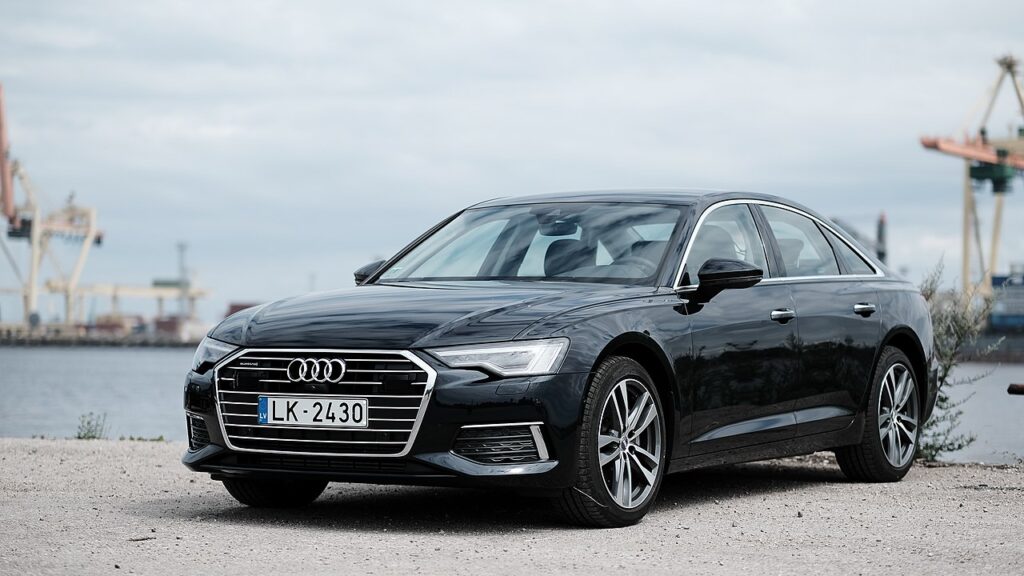Audi, a brand synonymous with luxury, performance, and innovative technology, has long been a prominent player in the Indian automotive market. Known for their meticulously designed sedans, SUVs, and high-performance sports cars, Audi has earned a reputation for delivering quality vehicles to discerning customers. However, as with many other automotive manufacturers, Audi has announced a price hike for its vehicles across India. This price increase is set to impact a wide range of models, leaving prospective buyers with important decisions to make.
If you’ve been eyeing an Audi car, it’s essential to understand the reasons behind this price hike and how it will affect your purchasing decision. Here’s a detailed breakdown of why Audi cars are becoming more expensive and what it means for you as a potential buyer.
Why Are Audi Cars Becoming More Expensive?
There are several factors driving the price hike of Audi vehicles in India. Understanding these reasons can help buyers make informed decisions.
1. Rising Raw Material Costs
Over the past year, the global prices of raw materials such as steel, aluminum, and other essential components have risen sharply. These materials are integral to manufacturing vehicles, and any price increase in their cost directly affects the final price of the cars. As Audi relies on premium materials to build its luxury vehicles, the rise in costs has led to the need for a price adjustment.
2. Global Supply Chain Challenges
The automotive industry, including Audi, has been significantly impacted by supply chain disruptions. A shortage of critical components, particularly semiconductor chips, has slowed down production for many manufacturers. These chips are vital for managing everything from engine systems to advanced in-car technology. The limited availability of these components has pushed production costs higher, contributing to the overall price increase.
3. Fluctuating Exchange Rates
Another crucial factor influencing the price hike is the volatility in exchange rates. Audi imports several components and models into India, and a weaker Indian Rupee against foreign currencies—particularly the Euro—can increase the cost of production. With currency fluctuations affecting the price of both components and vehicles, it becomes necessary for Audi to adjust its pricing strategy accordingly.

4. Government Policies and Taxes
Government taxes such as Goods and Services Tax (GST) and import duties play a significant role in the pricing of luxury vehicles in India. Audi, like other foreign brands, faces higher taxes on imported cars, which can lead to increased retail prices. Furthermore, the Indian government’s push for more stringent emission norms and safety standards can add to the cost of production, which is ultimately passed on to the consumer.
Which Audi Models Will See a Price Hike?
While Audi has not released a specific list of models that will be affected by the price increase, it is expected that many of the brand’s popular cars in India will see a rise in their price tags. Here are some models that are likely to experience the price hike:
- Audi A4 and A6: Audi’s flagship sedans, known for their luxury, comfort, and advanced technology, are expected to see a price increase. The A4 and A6 have long been favorites in the executive sedan segment, and as such, they are likely to be among the models impacted by the hike.
- Audi Q3 and Q5: Audi’s compact and mid-size SUVs have become increasingly popular in India due to their combination of luxury and practicality. The Q3 and Q5 are expected to be affected by the price rise as demand for premium SUVs continues to grow in the Indian market.
- Audi Q7 and Q8: As larger, more luxurious SUVs, the Q7 and Q8 are expected to see a price adjustment. With the increasing demand for premium SUVs in India, Audi is likely to increase the prices of these high-end models to maintain profitability.
- Audi A8 and RS Models: Audi’s flagship luxury sedan, the A8, along with its performance-oriented RS variants, will likely see significant price hikes due to their premium positioning in the market.
How Will the Price Hike Impact Audi Buyers?
For potential buyers, the price increase means that purchasing an Audi will become more expensive in the coming months. Those who have been planning to buy a new Audi may need to reassess their budget or consider finalizing their purchase before the new prices are implemented.
It’s also important for buyers to factor in the potential impact on long-term costs, such as servicing and maintenance. Audi’s vehicles, while offering top-notch performance and features, are part of the luxury segment, and maintaining them can sometimes come at a higher cost.
Should You Buy an Audi Before the Price Hike?
If you’ve been considering purchasing an Audi, it may be wise to act sooner rather than later. The price hike will likely affect a broad range of models, meaning that waiting could mean paying a higher price for the same vehicle. Moreover, some dealerships may offer promotions, financing schemes, or trade-in offers that could help offset the price increase.
For buyers who are on a tight budget, it might also be a good time to explore Audi’s certified pre-owned vehicles. These vehicles provide an opportunity to own an Audi at a more affordable price point without compromising on quality and luxury.
Is the Price Hike Justified?
While price hikes are often a point of concern for buyers, they are a common response to rising production costs, supply chain disruptions, and other economic factors. Audi remains a highly respected brand in the luxury car market, offering vehicles that combine superior craftsmanship, advanced technology, and exceptional performance. For many buyers, the increased price may still be justified given the value Audi cars offer.
However, as competition in the luxury car segment intensifies, Audi must ensure that its pricing remains competitive. Buyers may turn to other premium brands if they feel the value offered by Audi no longer aligns with the higher price.
Conclusion
The upcoming price hike for Audi cars in India is a reflection of broader industry trends, driven by rising material costs, supply chain issues, and currency fluctuations. While this increase may affect your car-buying decision, it also highlights the importance of acting quickly if you’re considering purchasing an Audi. As the luxury car market continues to evolve, prospective buyers should stay informed and explore all available options to make the most out of their investment.







